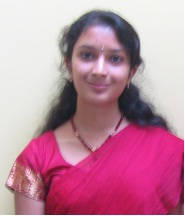Contribute
| Samskritam As A Foreign Language |
Suma Anand
04/16/2012
As the last few essays that I’ve written for Lokvani have been about Samskritam (aka Sanskrit) and in particular the SAFL program, I wanted to expand on it and talk about my experience with it. Go to safl.samskritabharatiusa.org for more information.
What is SAFL?
SAFL, or Samskritam as a Foreign Language, is a three-year course created by the non-profit organization Samskrita Bharati for students in 8th through 12th grade to learn Sanskrit. The course teaches basic reading, writing, listening and speaking skills, all in the medium of Sanskrit. At the end of it, students are prepared to study Sanskrit at the university level. But part of what is unique about SAFL is that it is done entirely online. Once a week, one and a half hour long classes are held through web conferencing, and homework is submitted online. Another unique part of the SAFL course is the residential camp experience, which I’ll talk more about later. Students are required to attend immersive camps as part of the course.
Why Samskritam?
Samskritam is an ancient Indian language and is said to be the MÄtá¹›bhÄá¹£Ä â€“ mother of many languages. Samskritam is an integral part of our Indian cultural heritage – from prayers to Carnatic songs to the Vedas, Sanskrit is everywhere. By learning Sanskrit, I was able to connect more fully to my heritage than ever before. Prayers which I’d chanted without thinking about now held meaning for me. I was able to explore parts of epics such as the Ramayana, which brings me to another point – literature. Before SAFL, I had never realized how incredible and expansive Sanskrit literature is. SAFL introduced me to the works of great poets from Valmiki to Kalidasa. The course made me appreciate how beautiful Samskritam really is.
Now, having introduced both SAFL and Samskritam, I’ll move on to the specifics.
THE SAFL EXPERIENCE
Teachers and Classes
Like I mentioned before, SAFL is taught entirely online. That means that its students are from all over the United States, a fact that I think is amazing. Once a week, students from all corners of the US come together for a 1.5 hour session in which grammar, vocabulary and conversational skills are taught. The classes are very organized and engaging. Often, the teachers will organize games such as Jeopardy to make the class more interactive. Teachers are always willing to answer any questions, and the students set the class pace – that is, the teachers will slow down or speed up based on the students’ needs.
Homework and Tests
Yes, there is homework, and yes, there are tests. But both the homework and the assessments are reasonable. The SAFL teachers know that students have a lot on their plates, and they adjust the work accordingly. There is ample time for test preparation, and teachers are always accessible for help. Moreover, SAFL is very receptive to both parent and student feedback.
Levels
There are 3 levels of SAFL – 100 (beginner), 200 (intermediate) and 300 (advanced). The courses are broken into semesters – 101 and 102, 201 and 202, and so on. Students coming into SAFL do not need to know any Samskritam at all. At the starting level, SAMS 101, students learn basic speaking and comprehension skills, as well as the DevanÄgarÄ« alphabet. Students can also choose to skip the beginner course and go straight to 201 if they have previous knowledge of Sanskrit, as I did. In order to skip 101, students must pass a proficiency exam.
Residential Camps
Residential camps are a unique and fantastic part of SAFL. The camps, which last one or two weeks, take place before SAMS 101 and after the end of 102, 202 and 302. They are opportunities for students to reinforce what they have learned over the year while still studying new concepts. The camps also provide chances for students to meet and interact with their classmates. I have made a lot of friends from the residential camps because apart from learning a lot of Sanskrit in a short time, I really did form strong bonds with my fellow students. The camps for this year are as follows:
Prajnaa: San Jose, CA. 2012 dates: June 17th – 23rd.
Shraddhaa: Saylorsburg, PA. 2012 dates: July 15th – 21st.
Medhaa: Bengaluru, India. 2012 dates: July 29th – August 12th.
School Credits
The SAFL program is currently not accredited by any U.S. accreditation body, but the organization has plans to get it accredited soon. That being said, several schools do grant independent study credits or foreign language waivers for the students pursuing the SAFL program; it just depends on the school.
Beyond SAFL
Now that I have completed SAFL, I fully intend to study Samskritam in college. The foundation in Samskritam that SAFL has given me has definitely prepared me for college level study. I look forward to learning more Samskritam!
Registration and Deadlines
Registration for SAFL is now open! Go online to safl.samskritabharatiusa.org to register. The cost of SAFL is $700 per student per year. The regular registration deadline is July 25, 2012. Those interested in taking the proficiency exam (scheduled for July 7th and 8th 2012) for direct entry in to the second year program should register by June 15, 2012.
For more details, go to safl.samskritabharatiusa.org
You may also access this article through our web-site http://www.lokvani.com/
